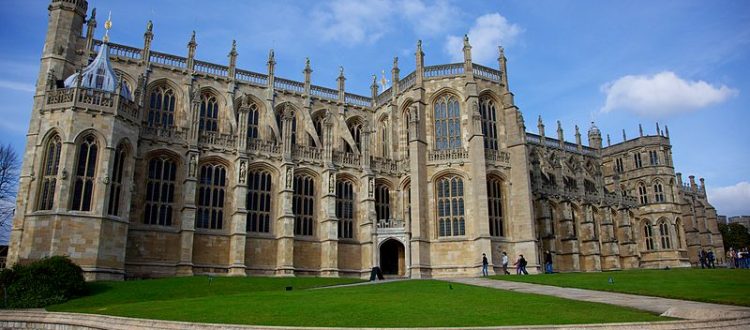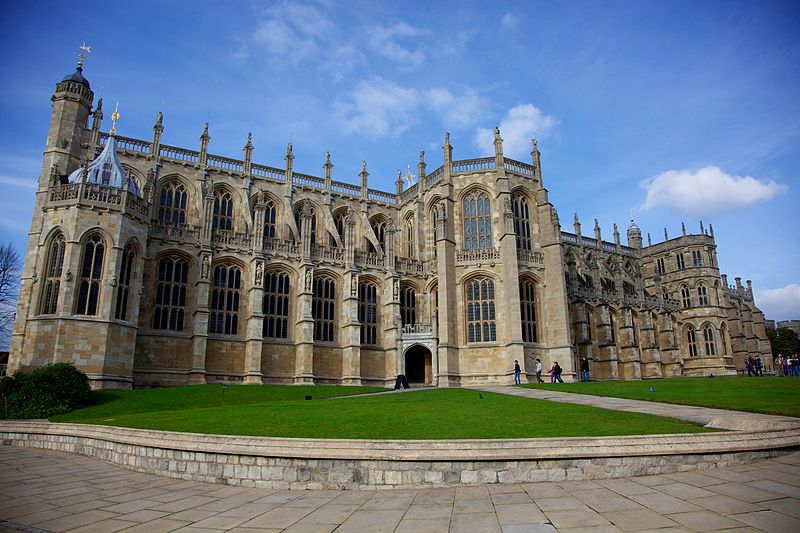20-26 April 1415: Military Preparations for the Invasion of France and St. George’s Day
By Dan Spencer
This week saw numerous payments relating to the military preparations for the invasion of France.
On 20 April, a commission was given to Nicholas Frost, boywer, to take bowyers and other artificers to make bows for the stores of the king. On the same date, the earl of Huntingdon indented to serve with twenty men-at-arms and forty archers for the expedition. He seems to have beenm the first to commit himself to the expedition. Three days later, William Caxton, Keeper of the King’s Ships, was also paid £16 4s 3d for carrying out repairs to the king’s ships at this time. In addition to this, work continued on procuring supplies for the royal guns, with William Founder paid £10 for grinding saltpetre and sulphur to make gunpowder for the king’s voyage to Harfleur.
There was still concern about the defence of Wales, since Owain Glyndwr had never been captured. On 23 April Thomas Strange was paid £282 14s 6d for the wages of soldiers serving in garrisons in North Wales.
St George’s Day 1415 occurred on 23 April. It was on this day that knights of the Garter (founded by Edward III in 1349) were expected to celebrate the day at Windsor Castle at a grand feast. It is unclear whether a feast occurred in 1415 but it certainly did in the previous two years. The Order of the Garter was a highly exclusive military order of twenty-six men, comprising the king and many of the leading nobles and knights of the realm. Many Garter knights later took part in the expedition to France, such as Henry V, the dukes of Clarence, Gloucester, York, the earls of Arundel and Dorset, Lord Camoys and Sir Thomas Erpingham.
Later on 26 April, a Robert Bodington was paid £40 for the safe custody of ships for the keeping of the sea towards Southampton. It is likely that this payment was linked to a decision taken earlier in the year, to pay for the expenses of five vessels to guard the south coast between Plymouth and the Isle of Wight (for more information click here). In addition to this, Richard Cliderewe (or Clitherow) was paid the large sum of £2,566 13s 4d for his expenses in hiring ships and sailors from Holland for the expedition to France.
Other military needs were not overlooked. On 26 April a protection for one year was given to Hugh Burgh, esquire, for being on the king’s service in the company of John Talbot, lieutenant of Ireland (for more information click here).
This information came from Calendar of the Patent Rolls, 1413-1416, pp. 307, 329; TNA, E403/621 m.3; ‘Rymer’s Foedera with Syllabus: April 1415’, in Rymer’s Foedera Volume 9, ed. Thomas Rymer (London, 1739-1745), pp. 216-238 http://www.british-history.ac.uk/rymer-foedera/vol9/pp216-238 [accessed 5 February 2015]; Ian Mortimer, 1415: Henry V’s Year of Glory (London: The Bodley Head, 2009), pp. 161-2.
The image of St George’s Chapel in Windsor Castle was taken from Wikipedia, licensed under the Creative Commons Attribution-Share Alike 2.0 license, author Aurelien Guichard

